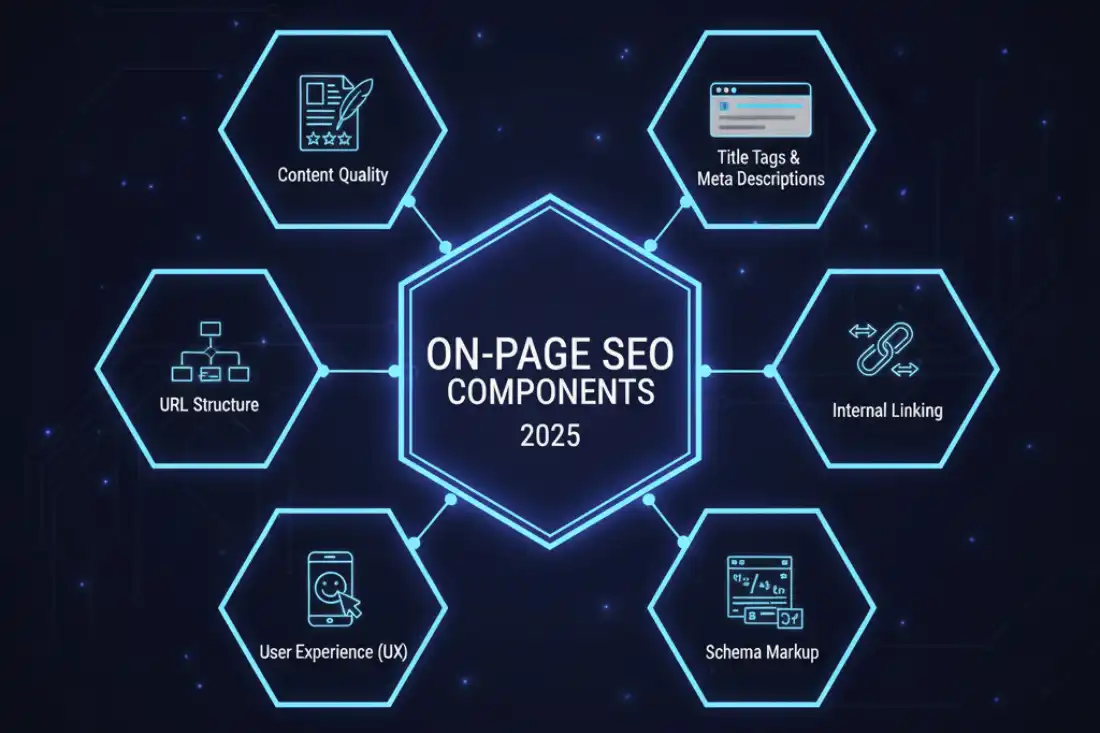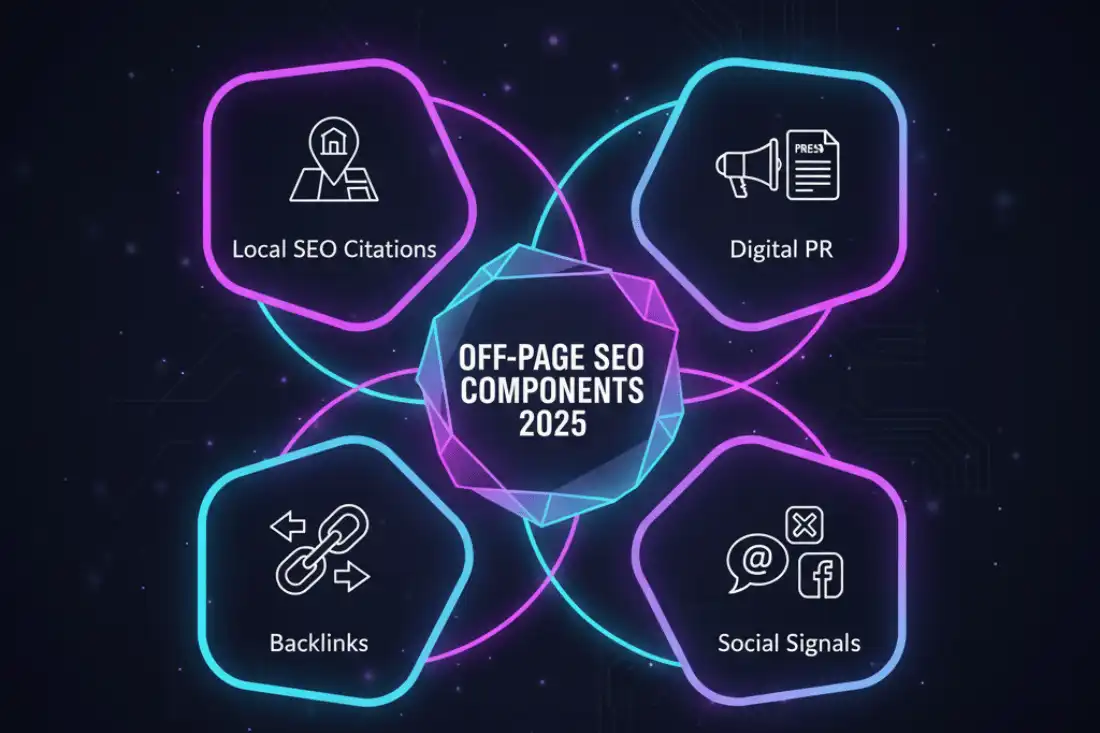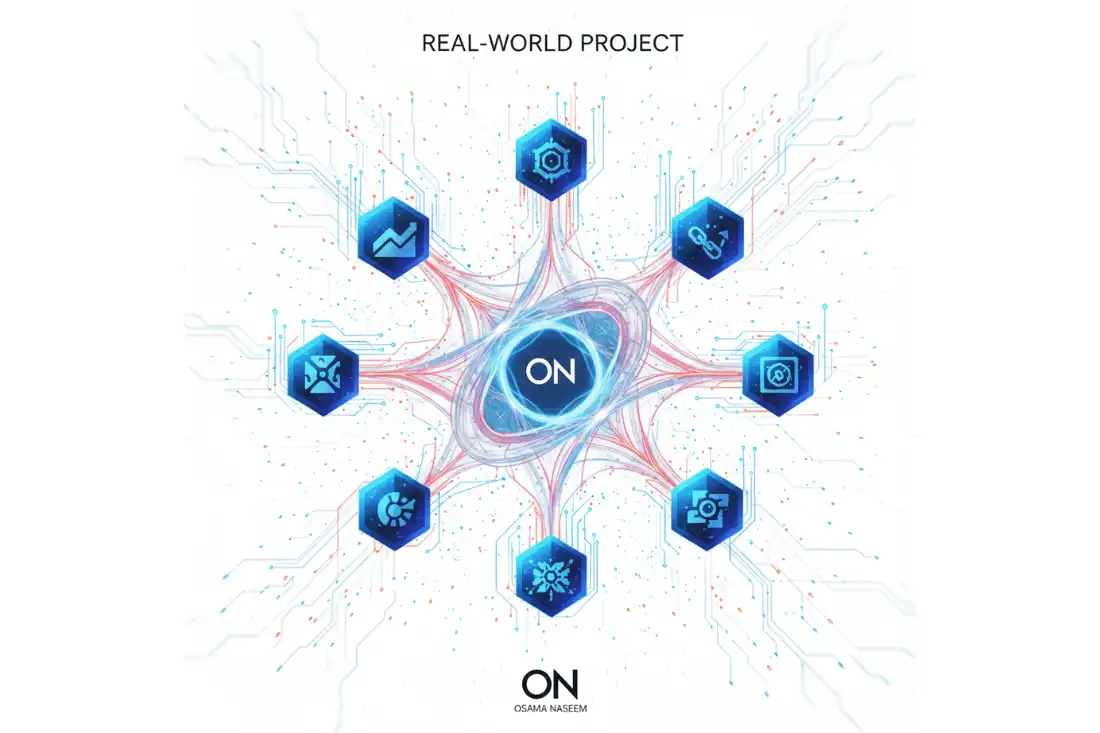Search Engine Optimization has always been about striking the right balance between what happens on your website and what happens outside of it. As we step deeper into 2026, business owners and marketers are asking a common question: Which is more important today, on-page SEO or off-page SEO?
The truth is, both play crucial roles in improving visibility and authority, but the way they contribute has shifted with Google’s evolving algorithms and user expectations. Let’s dive into each in detail, break down their differences, and see how you can apply them effectively to grow your online presence.
What Is On-Page SEO?
On-page SEO refers to everything you optimize within your website to make it search-engine and user-friendly. It’s the foundation of your SEO strategy because if your site isn’t well-structured, fast, and easy to navigate, even the strongest off-page tactics won’t sustain your rankings.
Key Components of On-Page SEO in 2026
- Content Quality
Google’s algorithms prioritize expertise, experience, authority, and trust (E-E-A-T). This means content must be original, informative, and Customized to user intent. Keyword stuffing is outdated. Instead, well-researched, conversational, and value-driven content earns higher rankings. - Title Tags and Meta Descriptions
Your title tag still holds significant weight for ranking. Craft titles that are clear, keyword-rich, and engaging. Meta descriptions, while not a direct ranking factor, heavily influence click-through rates. - URL Structure
Clean, keyword-rich URLs are easier for search engines to crawl and for users to understand. For example:- Good:
yourwebsite.com/seo-services/on-page-seo - Bad:
yourwebsite.com/page?id=12345
- Good:
- Internal Linking
Strategic linking between relevant pages helps distribute authority across your site and guides visitors to more valuable content. - User Experience (UX)
Core Web Vitals, page speed, mobile responsiveness, and clear navigation directly affect rankings. A poor UX increases bounce rates and reduces time-on-page, which signals to Google that your content may not meet user needs. - Schema Markup
Adding structured data improves how your content appears in search results, often boosting clicks with rich snippets like FAQs, ratings, and featured answers.

What Is Off-Page SEO?
Off-page SEO focuses on activities that happen outside your website but influence your search engine rankings. Think of it as your website’s reputation-building strategy. The stronger your reputation and authority in your niche, the more trust search engines place in your content.
Key Components of Off-Page SEO in 2026
- Backlinks
Backlinks remain the backbone of off-page SEO. However, the focus has shifted from quantity to quality. A few high-authority backlinks from trusted websites in your industry are far more powerful than dozens of low-quality links. - Digital PR
Online mentions, news coverage, and guest appearances in industry publications build authority. Being referenced on credible platforms tells Google your brand is recognized as a leader. - Social Signals
While social shares aren’t a direct ranking factor, they amplify your content’s reach. The more people share and engage with your content, the more likely it is to earn backlinks naturally. - Brand Mentions
Even unlinked mentions of your brand contribute to authority. Google increasingly recognizes brand presence as a trust factor. - Local SEO Citations
For businesses targeting specific regions, directory listings and local citations (like Google Business Profile, Yelp, or industry-specific directories) play a vital role in visibility.

On-Page vs Off-Page SEO: How They Differ
| Aspect | On-Page SEO | Off-Page SEO |
|---|---|---|
| Focus | Optimizing elements within your website | Building authority outside your website |
| Goal | Improve user experience and content relevance | Increase credibility, trust, and backlinks |
| Examples | Title tags, meta descriptions, content optimization, site speed | Backlinks, PR, social engagement, brand mentions |
| Control | Fully in your control | Partially in your control (depends on outreach and reputation) |
| Impact | Direct influence on rankings and usability | Long-term authority building and higher ranking potential |
Which Matters More in 2026?
In 2026, neither on-page nor off-page SEO alone is enough to secure top rankings. The key lies in how they complement each other.
- On-page SEO is your foundation. Without high-quality content, a fast and responsive website, and structured data, Google won’t consider you a reliable source.
- Off-page SEO is your authority builder. Even with perfect on-page optimization, you’ll struggle to outrank competitors if you don’t have strong backlinks, PR, and brand mentions.
Think of it this way: On-page SEO makes your house livable and appealing, while off-page SEO spreads the word about your house in the neighbourhood. You need both to attract visitors and keep them engaged.
How Google’s AI Updates Influence the Balance
Google’s shift toward AI-driven search results (like Search Generative Experience) makes both strategies even more critical.
- On-page SEO ensures your content is optimized for AI-driven snippets, voice searches, and conversational queries.
- Off-page SEO ensures your brand is recognized as credible enough to be included in AI-generated results.
This means the synergy between both elements has become stronger than ever. You can’t neglect one in favour of the other.
Real-World Example from My Work
When I work with clients, I often notice a common pattern: businesses either focus too heavily on one side or completely ignore the other.
For example, I helped a startup that had invested heavily in backlinks but ignored its on-page fundamentals. Their site was slow, content was thin, and their structure confused both users and search engines. Despite a good backlink profile, they couldn’t rank well.
After fixing their on-page SEO, revamping content, speeding up the site, and improving navigation, their existing backlinks began to deliver real value. Rankings climbed, and within four months, they saw a 140% increase in organic traffic.
On the flip side, I worked with a local business that had great content and well-optimized pages but lacked off-page authority. By implementing a digital PR strategy, securing local citations, and building high-quality backlinks, we helped them appear in the top three local pack results, which tripled their lead flow.
This proves that both sides of SEO must work hand in hand for maximum impact.

Best Practices for Balancing On-Page and Off-Page SEO
- Start with On-Page SEO First
Build a strong foundation with excellent content, structured data, site speed optimization, and UX improvements. - Create Link-Worthy Content
Develop resources like guides, case studies, infographics, or industry reports that naturally attract backlinks. - Leverage Guest Blogging and Digital PR
Publish content on authoritative websites, participate in podcasts, and get featured in relevant online media. - Engage on Social Media
Share your content across platforms, encourage discussion, and grow your online community. - Track and Refine Continuously
Use tools like Google Search Console, Ahrefs, or SEMrush to monitor rankings, backlinks, and traffic. Adjust your strategy based on data.
Final Thoughts
In 2026, the debate of on-page SEO vs off-page SEO is not about choosing one over the other; it’s about recognizing their interdependence. On-page SEO ensures your site is technically sound and user-friendly, while off-page SEO builds your authority and reputation in the digital landscape.
As an SEO Expert, my approach is always holistic. I help businesses not only optimize their websites but also amplify their reach and credibility across the web. The result is sustainable growth, improved rankings, and a brand presence that outshines competitors.
FAQs
1. Is on-page SEO more important than off-page SEO in 2026?
No, both are equally important. On-page SEO builds your foundation, while off-page SEO builds your authority. Neglecting either weakens your overall SEO performance.
2. How long does it take to see results from on-page SEO?
Typically, you can see improvements within 4 to 12 weeks, depending on your website’s health and competition level.
3. Are backlinks still important in 2026?
Yes, but quality matters more than quantity. A few high-authority backlinks have far greater impact than many low-quality ones.
4. Can I rank with just on-page SEO and no backlinks?
For very low-competition keywords, yes. But for competitive niches, backlinks and authority are necessary to secure top rankings.
5. How can Osama Naseem help my business with SEO?
I provide Customized SEO and digital marketing strategies, combining on-page optimization, off-page authority building, and data-driven insights to grow your visibility and revenue.
